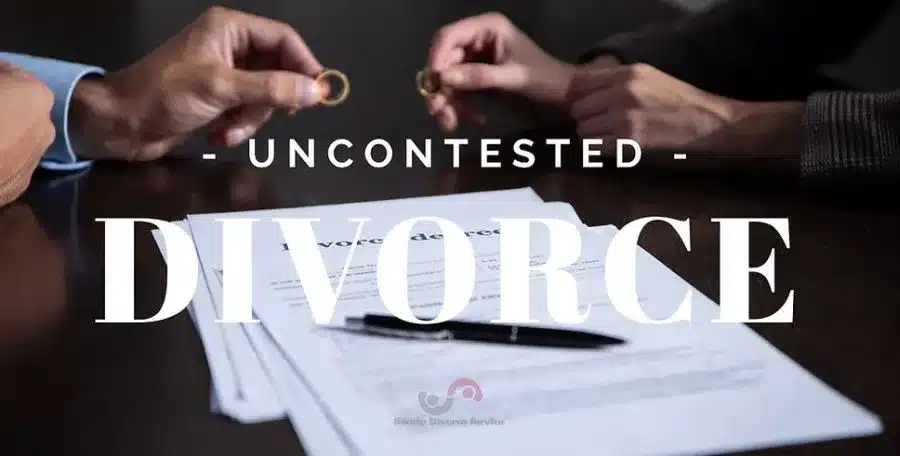A quit claim deed will remove your ex-spouse from the title of real-estate you’ve been awarded in your divorce. What can you do if your ex won’t sign it?
Say you’ve been awarded the house (or another piece of real estate) in a divorce and want to know how to get your ex-spouse’s name off of the title. The simple answer is a quit claim deed or in Texas a special warranty deed.
But like life, in divorce answers are rarely that simple. If your ex-spouse refuses to sign the quit claim there are several steps, you can take to force them to do it.
Deed Basics
Before discussing the use of the quit claim deed in divorce cases, you need to know a few basic terms:
- Deed. A legal document that transfers ownership of real property.
- Grantor or Transferor. A person who transfers ownership of his or her interest in real property.
- Grantee or Transferee. A person to whom an interest in real property is transferred.
- Quit Claim Deed. A deed that transfers title to real estate without providing any guaranty of the seller’s title. Quit claim deeds are used when the grantee is certain of the grantor’s ownership, such as in the case of a divorce.
- Please note: The proper term is quit claim deed; not quick claim deed.
Removing a Spouse from a Deed After Divorce

Part of a divorce judgment is the division of property between the spouses.
If any of that property is real estate that is held by both parties, it will be necessary for the spouse who is not awarded the property to sign a quit claim deed transferring his or her interest to the spouse who is awarded the property.
Your Divorce Judgment
Your divorce judgment will either outline the property division or incorporate a settlement agreement (if you have one). The divorce judgment or settlement agreement may or may not specifically order your former spouse to execute a quit claim deed. It may include a general statement to the effect that each party is required to take any and all actions necessary to carry out the division of property, which covers quit claim deeds for real estate. Even if the judgment or agreement is silent on this point, it is still implied that the necessary steps must be taken to transfer title to property.
How to Get Court to Order Your Ex-Spouse to Sign Quit Claim Deed
If your former spouse won’t sign a quit claim deed for property awarded to you, it will be necessary to go back to court to ask the judge to enforce the judgment, with a court ordered quit claim deed. Generally, the judge will have two ways of doing this:
- Find your ex-spouse in contempt of court, and sentence him or her to jail until a quit claim deed is signed; or
- Issue a court order that transfers the property, which takes the place of a quit claim deed.
Which method is used by the court will depend upon the law and common practice of the courts in your state.
Court Procedures
Although the specifics vary from state to state, some type of court document will need to be filed to bring the matter back before the judge. Typically, this will be called a Motion to Enforce Divorce Judgment, a Petition to Compel Quit Claim Deed, a Motion for Order to Show Cause (why your ex-spouse shouldn’t be held in contempt of court for failing to comply with the judgment), or something similar.
The motion or petition will be filed with the court, a hearing date will need to be scheduled with the judge, and a copy of the papers and notice of the hearing will need to be sent to your ex-spouse (or his or her lawyer).
Be sure to bring the unsigned quit claim deed to court with you. At the hearing, the judge will need to find that:
- You were awarded the property in the divorce judgment.
- Your spouse has been presented with a quit claim deed to transfer the property to you; and
- Your spouse has not signed the deed.
The judge will probably order your ex-spouse to sign the quit claim deed in court, and will give your ex-spouse an opportunity to explain why the deed was not signed.
To get a quit claim deed:
Possible Outcomes
You can expect one of three possible outcomes on the way to filing the quit claim deed:
- Your spouse signs the deed. At which point you’ll need to file it with the appropriate agency (most often the county clerk or property recorder).
- The judge makes a finding of contempt of court. Your ex-spouse will sit in jail until he or she signs the deed. Once the deed is signed, file it.
Your ex-spouse refuses to sign the deed even under a contempt finding and the court issues a court order for the transfer of the property. This order can then be filed with the appropriate agency instead of a quit claim deed.
Related: General Warranty Deed vs Special Warranty Deed
Talk to a Lawyer
No matter where you stand on the situation, consult with a lawyer. Each state has its own laws regarding property and debt divisions, so it’s crucial to ensure that you have all the information and facts you need moving forward.
Looking for more advice about divorce? Here are a few of our favorite resources:






